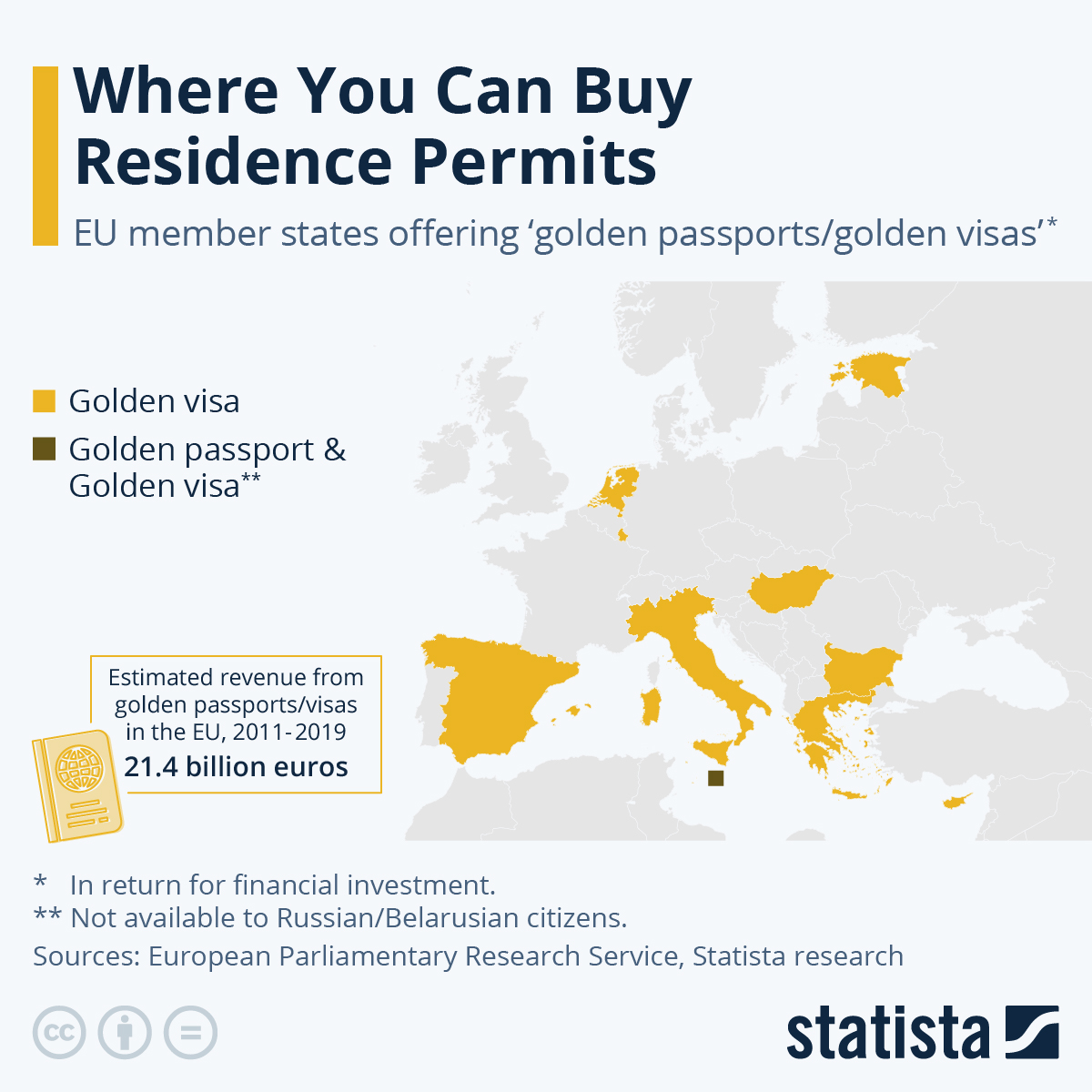


There are several ways to obtain the citizenship of a country.
As well as simply being born there or being the descendant of one of its citizens, nations allow permits through marriage, adoption or naturalization - the latter of which is based on an application-related executive decision. Until the outbreak of the Ukraine war, additional "citizenship by investment" (CBI) programs were also offered in the three EU member states of Cyprus, Malta and Bulgaria.
As Statista's Anna Fleck and Florian Zandt note, these are more commonly known as "golden passports."
By investing a certain amount of money, it becomes possible to obtain citizenship without the bureaucratic hurdles.
Bulgaria and Cyprus have now abolished this method of granting citizenship, while Malta refuses to grant such passports specifically to Russians and Belarusians.
However, "Golden visas", i.e. residence permits granted in exchange for investments in the economy, still exist in several other EU countries, as the chart below shows.
You will find more infographics at Statista
Especially in Southern Europe, so-called "residency by investment" (RBI) programs are fairly common. While this practice was recently abolished in Portugal and Ireland, Spain, Greece, Cyprus and Malta, among others, still grant residency rights in exchange for economic investments. According to a 2019 study by the EU Commission, more than 130,000 people were either naturalized or granted residence rights under CBI and RBI between 2011 and 2019, which had generated a conservatively estimated total revenue of €21.4 billion for the countries.
Both practices have come under fire from officials.
As early as 2014, the EU spoke out against such programs, arguing, among other things, that they run counter to anti-discrimination requirements and could potentially encourage corruption and money laundering. In Portugal, for example, the RBI program, which has now been abolished, is considered to have fueled the real estate crisis.
Worldwide, the first CBI programs were launched in the 1980s on a few Caribbean islands, and some of them are still active there today. European non-EU countries that offer CBI include Montenegro and Turkey.

